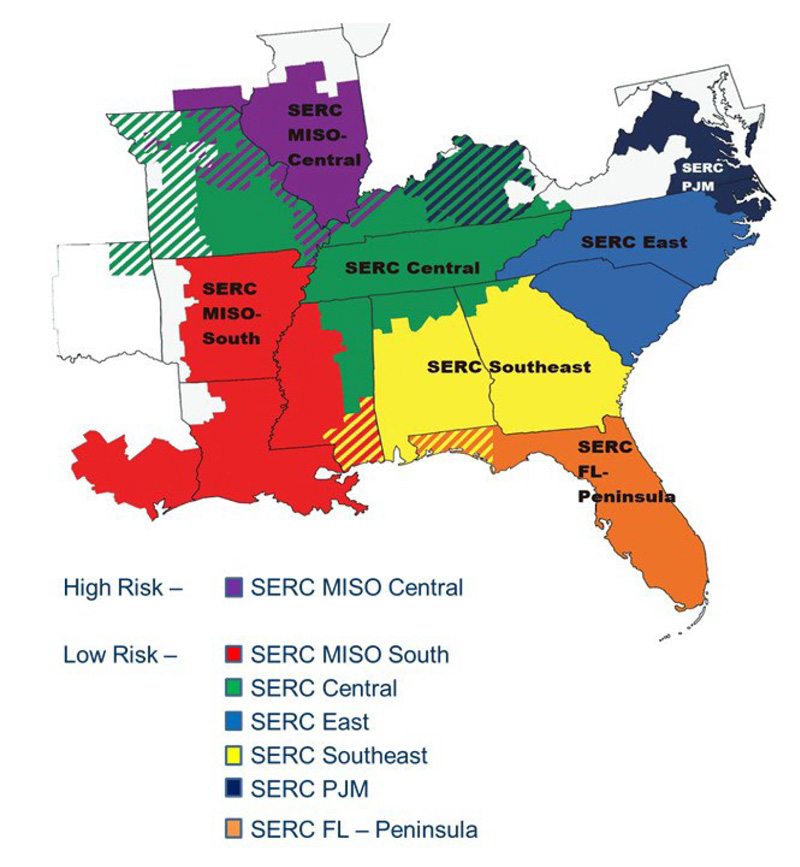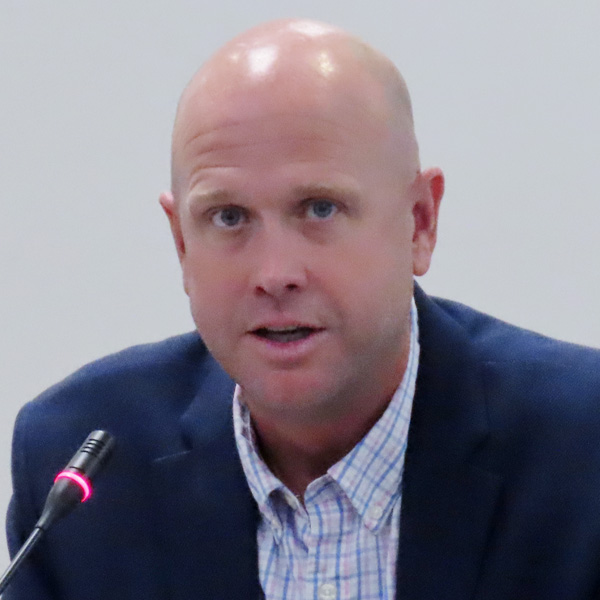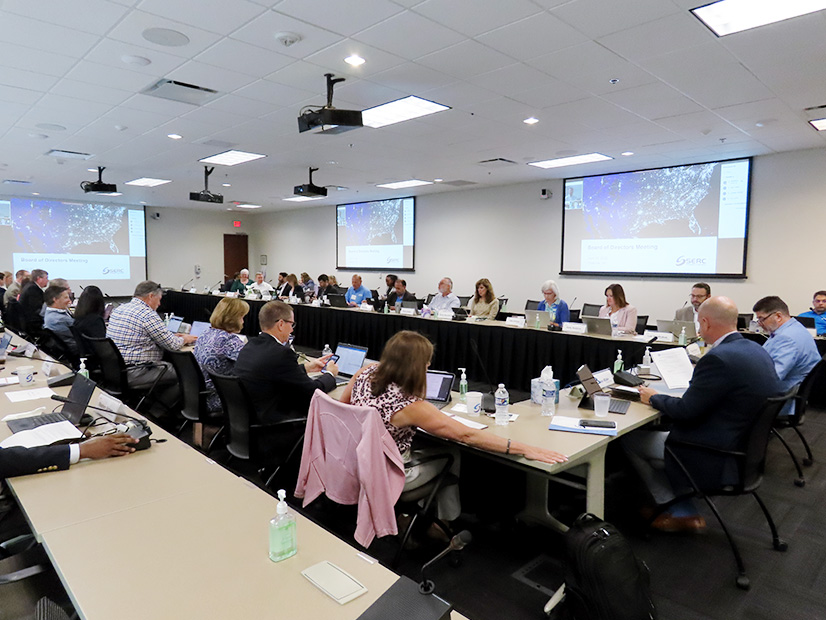Summer Assessment Shows Challenges Ahead
CHARLOTTE, N.C. — Entities in the footprint of SERC Reliability can expect the 2022 summer season to bring continued challenges, attendees heard at Thursday’s open meeting of the organization’s Board of Directors.
Presenting SERC’s recently published 2022 Regional Summer Assessment, Melinda Montgomery, the regional entity’s senior director of engineering and advanced analytics, observed that elevated temperatures are expected across nearly all of the continental U.S. According to the National Oceanic and Atmospheric Administration’s (NOAA) projections issued in May, most of SERC’s footprint have a 40 to 50% chance of higher-than-normal temperatures in June through August.
“Back in May, I was really surprised to see the level of hot weather that we were already experiencing,” Montgomery said. “And it wasn’t just in isolated areas; it [was] over large sections of the Southeast, and actually across the country.”
Despite the elevated temperatures, SERC’s assessment shows that most of the region is likely to meet the season’s expected summer peak demands without resorting to emergency resources, non-firm energy imports and demand-side management. By comparison, NERC’s Summer Reliability Assessment, released last month, showed an elevated or high risk of energy emergencies across the Western Interconnection, Texas and much of the Midwest. (See West, Texas, Midwest at Risk of Summer Shortfalls, NERC Says.)
 SERC’s 2022 Summer Resource Reliability Outlook shows most of the Southeast at low risk of resource shortfalls, except for the SERC MISO Central subregion, which may need to turn to emergency resources, non-firm energy imports, or demand side management to maintain reliability. | SERC
SERC’s 2022 Summer Resource Reliability Outlook shows most of the Southeast at low risk of resource shortfalls, except for the SERC MISO Central subregion, which may need to turn to emergency resources, non-firm energy imports, or demand side management to maintain reliability. | SERCThe one exception to this forecast is the MISO Central subregion, comprising parts of Illinois, Iowa, Missouri and Kentucky. SERC predicts that the subregion could lack sufficient resources to meet peak demand on its own under normal conditions and could have to rely on emergency measures in the case of higher-than-expected generation outages, high loads or other extreme scenarios.
While NERC’s assessment warned that ongoing droughts could lead to generation shortfalls in the Western Interconnection, Montgomery said this is not likely to be an issue in the Southeast; according to NOAA, the region has either a 50% or higher likelihood of greater-than-average precipitation this summer. The greater danger is from hurricanes: Colorado State University’s hurricane forecast, updated earlier this month, predicts the third above-average hurricane season in a row, with 20 named storms, all of which are expected to be hurricanes.
SERC CEO Jason Blake called the assessment “daunting” and said the RE is working to “really lean in and help make sure that we are … putting [utilities] in the best possible position.”
“You’re hearing already [that] we’re hitting peak demands in June,” Blake said. “So that’s something that is sobering, and something that we need to be very mindful of.”
Budget Approved with Merit Pay Adjustment
 SERC CEO Jason Blake | © RTO Insider LLC
SERC CEO Jason Blake | © RTO Insider LLCBoard members voted to approve SERC’s final business plan and budget for 2023. NERC will now submit the document, along with the business plans and budgets for the rest of the ERO Enterprise, to FERC for approval, which is expected by October.
SERC’s total expenses are expected to rise to $28.2 million next year, according to the final budget, slightly higher than the draft approved at the previous board meeting in March. (See “2023 Business Plan and Budget,” SERC Board of Directors/Members Briefs: March 30, 2022.) CFO George Krogstie explained that the difference was because the RE’s Finance and Audit Committee decided to expand the planned 3% increase to the market adjustment category — which governs spending on merit-based raises and promotions — by another 1.5%, in light of the high demand for cybersecurity personnel pushing up salaries for these positions.
The board approved this increase in advance at the March meeting as well. After SERC’s draft budget was approved by the board, it was submitted to NERC and posted for a 30-day stakeholder comment period. No comments were received, leading SERC’s FAC to accept the budget at its meeting on Wednesday with no changes.
New Members Accepted
As part of the consent agenda, the board agreed to accept four utilities as new members:
-
-
- BayWa r.e. Operation Services: performs generator owner and generator operator functions for its sister company, Fern Solar, in North Carolina;
- Capital Power: owns and operates the Cardinal Point wind facility in Illinois and the Decatur Energy Center in Alabama;
- Silicon Ranch: owns solar farms across the U.S., including seven states in the SERC footprint; and
- WestRock: owns and operates Green Power Solutions, a biomass power plant in Dublin, Ga.
-
All four new members will join SERC’s Merchant Electricity Generating Sector and participate in the RE’s Generator Working Group.




